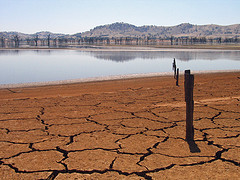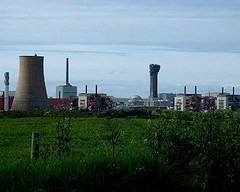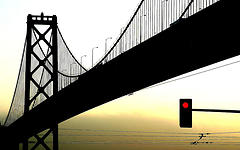April 24th, 2009 by Kevin Lindstrom | No Comments »
Canada Excellence Research Chairs – Phase 1 Competition Results
Overview
In 2008, the Government of Canada created a new permanent program to establish 20 prestigious research chairs–Canada Excellence Research Chairs (CERC)–in universities across the country. The CERC program invests $28 million a year to attract and retain the world’s most accomplished and promising minds and help Canada build a critical mass of expertise in the priority research areas of environmental sciences and technologies, natural resources and energy, health and related life sciences and technologies, and information and communication technologies.
Phase 1 Competition Results
The following 17 universities have been invited to compete in Phase 2.
Universities invited to Phase 2 competition
(Number of successful proposals arranged from West to East)
* University of British Columbia (4)
* University of Alberta (5)
* University of Calgary (1)
* University of Saskatchewan (1)
* University of Manitoba (1)
* University of Toronto (5)
* University of Waterloo (4)
* McMaster University (2)
* Queen’s University (1)
* University of Western Ontario (2)
* University of Ottawa (2)
* McGill University (4)
* Université Laval (3)
* Université de Sherbrooke (1)
* Université du Québec à Trois-Rivières (1)
* University of Prince Edward Island (1)
* Dalhousie University (2)
Click here for a list of the successful proposals
Submitted by Kevin Lindstrom Liaison Librarian
Posted in About this blog, Amusing stuff, Atmospheric Science, Chemical and Biological Engineering, Chemistry, Civil Engineering, Earth and Ocean Sciences, General Science, Geography, Main, Materials Engineering, Mathematics, Mechanical Engineering, News, Physics, Podcasts, Science - undegraduate classes, Statistics, Teaching, Uncategorized, Wood Sciences | No Comments »
April 23rd, 2009 by Eugene Barsky | No Comments »

A recent BBC article mentions research showing that some of the developing world’s largest rivers are drying up because of climate change, threatening water supplies in some of the most populous places on Earth, say scientists.
Researchers from the US-based National Center for Atmospheric Research (NCAR) analysed data combined with computer models to assess flow in 925 rivers — nearly three quarters of the world’s running water supply — between 1948 and 2004.
A third of these had registered a change in flow and most of them — including the Niger in West Africa, the Ganges in South Asia and the Yellow River in China — were dryer.
Rivers are losing water for a variety of possible reasons, say the researchers, including the installation of dams and the use of water for agriculture. But in many cases the decrease in flow is because of climate change, which is altering rainfall patterns and increasing evaporation because of higher temperatures.
The research will be published in the American Meteorological Society’s Journal of Climate next month (15 May) – available for the UBC community in electronic full text.
** Photo by suburbanbloke
Posted in Atmospheric Science, Earth and Ocean Sciences, General Science, Geography, Main, Science - undegraduate classes, Uncategorized | No Comments »
April 17th, 2009 by Kevin Lindstrom | No Comments »
Giving the green light for BC small hydro: independent power producers are taking up the challenge to develop British Columbia’s plentiful supplies of small hydro. Suzanne Pritchard reports. International Water Power & Dam Construction, Dec 2008 v60 i12 p40(2)
“Well known for its mountainous topography and abundant rainfall, the coastal regions of British Columbia can have more than 4m of rainfall per year. In addition, the province’s sheer size, run-off from snow melt and thousands of creek reaches mean it is also ideally suited for run-of-river hydro power. ‘There is phenomenal potential for small hydro here,’ says Mike Wise, vice chair of the hydro committee for the Independent Power Producers Association of British Columbia (IPPBC). ‘The hydro sites are just fantastic.'”
“Beyond British Columbia’s ideal geographic setting for hydro power is the unique ‘green’ design of the run-of-river projects. ‘This design is very different to hydro projects almost anywhere in the world. It is the sole reason why we are judged to have the lowest environmental impact,’ says Steve Davis, president of the IPPBC.
“‘We do not have big storage reservoirs,’ says Davis. ‘In fact, typical headpond is only the size of a soccer field. While most others have short, thick pipes in tall concrete dams, our projects have long, narrow steep pipes and low rubber weirs. Our glaciated hanging valleys and alpine lakes enable us to locate the projects above a natural fish barrier and still get lots of head. So unlike most other hydro projects we are able to avoid directly impacting fish habitat.'”
Want to be familiarize yourself with run of river research both in terms of both the environmental and engineering aspects? What are the issues? Want to separate the hype from the reality?
The following databases will gave you access to international research dealing with run of river power generation:
ASFA and Geobase will give you access to environmental and fisheries related research. Compendex is excellent for the engineering side of run of river power generation.
Submitted by Kevin Lindstrom Liaison Librarian for Earth and Ocean Sciences
Posted in Civil Engineering, Earth and Ocean Sciences, General Science, Geography, Main, Science - undegraduate classes, Uncategorized | No Comments »
April 16th, 2009 by Eugene Barsky | No Comments »

Since early April 2009, the access to INIS database has been opened to all Internet users around the world. Free, open and unrestricted access is available from the INIS Homepage, or directly from the following link: INIS Database.
This initiative provides easy access to reliable nuclear information on the peaceful uses of nuclear science and technology, including nonconventional literature, and makes nuclear knowledge readily available worldwide.
Established in 1970, INIS represents the world’s largest database of scientific and technical literature on a wide range of subjects from nuclear engineering, safeguards and non-proliferation to applications in agriculture, health and industry.
Currently, the INIS Database contains over 3 million bibliographic records and almost 200,000 full-text nonconventional documents, consisting of scientific and technical reports and other non copyrighted information.
** photo by clark
Posted in Atmospheric Science, Chemical and Biological Engineering, Chemistry, Earth and Ocean Sciences, General Science, Main, News, Physics, Science - undegraduate classes, Uncategorized | No Comments »
April 8th, 2009 by Eugene Barsky | 1 Comment »

New York Times was running an interesting article – “Concrete Is Remixed With Environment in Mind” last week which is certainly an interesting read.
The article discussed various ways to make environment friendly concrete.
A quick search in Web of Science database for (concrete or cement) AND environment* finds almost 9,000 articles on the topic.
A quick search in Compendex, a primary engineering database finds 12,000 articles, the last one published on April 4, 2009.
** Photo by Thomas Hawk
Posted in Civil Engineering, Earth and Ocean Sciences, General Science, Main, Materials Engineering, Mechanical Engineering, Science - undegraduate classes, Uncategorized | 1 Comment »



